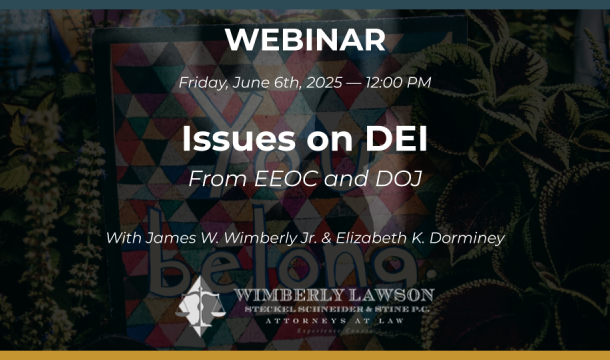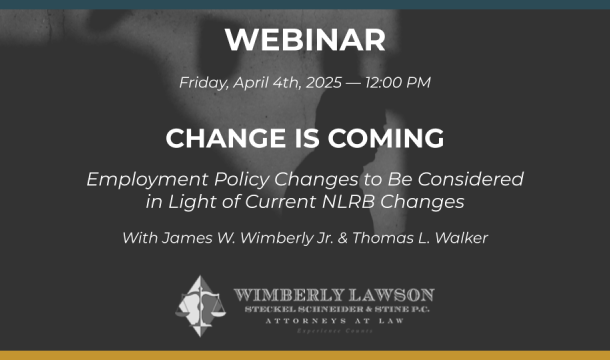NLRB Rules Prohibited Class Action Waivers Again Rejected by Court
As stated in the prior article, the National Labor Relations Board protects concerted activity on the part of employees. Concerted activity refers to the concept of two or more employees joining together to improve their work situation. A relatively recent application of the concept pertains to employers who require all applicants and employees to sign arbitration agreements that require all allegations of law violations (with some exceptions) to go through private arbitration rather than through the court system, and generally prohibit class or collective actions. The U.S. Supreme Court has generally upheld the legality of such arbitration agreements and class action waivers, because of the Federal Arbitration Act. However, the NLRB has ruled that any employment agreement waiving an employee's rights to bring class or collective actions in court, is unlawful, because it prohibits employees from engaging in the concerted activity of filing a class or collective action lawsuit. The NLRB thus finds such waivers to be unlawful.
In December, the Fifth Circuit Court of Appeals rejected the NLRB ruling, and upheld the right of an employer to require that all employment-related disputes are to be resolved through individual arbitration. D.R. Horton, Inc. v. NLRB, 197 LRRM 2637 (Fifth Circuit, 12/3/13). The court did enforce the NLRB ruling to the extent that it required the employer to rescind or revise the arbitration agreement to clarify that employees are not prohibited from filing unfair labor practice charges with the NLRB.
The case arose when an employee brought a nation-wide class action that the employer improperly classified him and others as exempt under the statutory overtime provisions of the wage-hour law. The employer responded that the arbitration agreement barred collective claims but invited individual arbitration procedures. The claimant then filed an unfair labor practice charge, and the Board issued an order finding that the arbitration agreement interfered with the right of employees to engage in "concerted activity" under the Labor Act. The employer then petitioned for review in court, and the ruling was overturned.
Editor's Note: Many large employers across the U.S. are instituting individual employment agreements with their employees. Such agreements are generally lawful, provided they are properly drafted and implemented. Such agreements may offer the advantage of avoiding class and collective action litigation, as well as avoiding the additional expenses and risks that often occur in court litigation. There are some downsides to such agreements, however. One downside is that such agreements are not entirely popular with employees, but this issue can be avoided if proper implementation measures are taken. The other downside is that arbitration agreements make it a little easier for employees to "sue" even if their dispute goes to arbitration rather than to court.
Related Content
Get Email Updates

The EEOC and DOJ Issue Guidance on DEI

Considerations When Government Officials Show Up and Request to Meet with Individual Employees

How Jurors Evaluate the Fairness of an Employer’s Actions

Some of the Controversial Issues Currently Being Faced by Employers in Light of Recent Developments

Frequently Asked Questions About Recent Immigration-Related Actions



